 Petzlover
Petzlover Both Bicolor and Maine Coon are originated from United States. Both Bicolor and Maine Coon are having almost same weight. Bicolor may live 3 years more than Maine Coon. Both Bicolor and Maine Coon has same litter size. Both Bicolor and Maine Coon requires Moderate Maintenance.
Both Bicolor and Maine Coon are originated from United States. Both Bicolor and Maine Coon are having almost same weight. Bicolor may live 3 years more than Maine Coon. Both Bicolor and Maine Coon has same litter size. Both Bicolor and Maine Coon requires Moderate Maintenance.
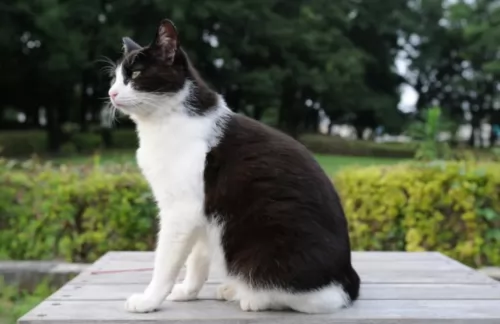 The first thing to know is that a Bicolor cat isn’t in fact a breed. Bicolor is just a term that describes a certain look that a cat has with its coat. It’s a cat with two colors such as red and white or black and white.
The first thing to know is that a Bicolor cat isn’t in fact a breed. Bicolor is just a term that describes a certain look that a cat has with its coat. It’s a cat with two colors such as red and white or black and white.
A popular name for bi-color cats is also Piebald or Tuxedo, and in fact many cat breeds can produce bicolor kittens, or black and white kittens such as Cornish Rex, Maine Coon, Manx, and others.
There are different coat color combinations when it comes to bicolor cats and the black and white markings may be more common but there are other color combinations too such as orange and white.
Nobody seems to know the origins of the Bicolor cats so we are going to assume they come from the USA.
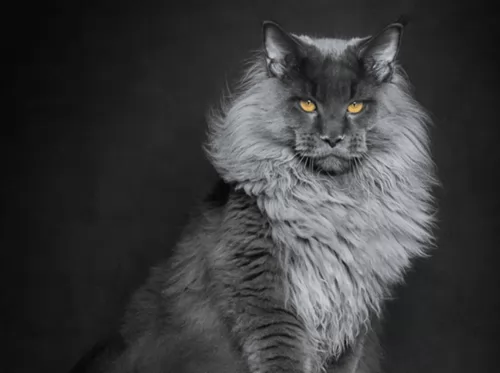 The Maine Coon cat hails from Maine, USA. It’s a natural cat breed with actually little being known of its exact origins.
The Maine Coon cat hails from Maine, USA. It’s a natural cat breed with actually little being known of its exact origins.
In fact, the first reference to the cat seems to have been in about 1861. It was in 1895 that a female Maine Coon was named Best Cat at a cat show held in Madison Square Gardens.
The Cat Fanciers Association was formed in 1908, and the 5th cat registered as a Maine Coon named Molly Bond.
The Maine Coon Breeders and Fanciers Association was formed in 1968. The cat is also the official state cat of Maine.
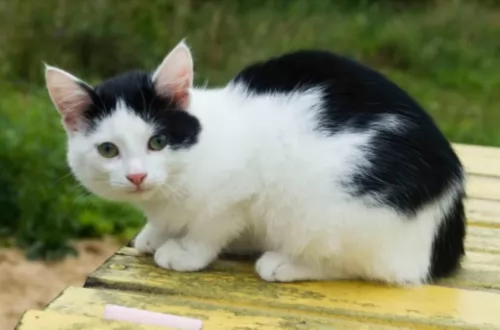 Regardless of the breed they belong to, information on these cats suggests that they can have many different looks. Look at the amazing Turkish Van cat for instance – each of these cats is recognizable for its long, luxurious fur. You’ll find a few touches of color on the cat's ears and tail, making in a Bicolor. They also have an interesting characteristic – being fond of water!
Regardless of the breed they belong to, information on these cats suggests that they can have many different looks. Look at the amazing Turkish Van cat for instance – each of these cats is recognizable for its long, luxurious fur. You’ll find a few touches of color on the cat's ears and tail, making in a Bicolor. They also have an interesting characteristic – being fond of water!
These Bicolor cats weigh in the region of 3 – 7kg, and can tend towards the smaller or larger size. Some of them can have short or long hair, larger or smaller ears and green or yellow eyes.
Coming from different cat breeds, the bicolor cat can have a mix of wonderful characteristics – they can be vocal or quiet or confident or shy.
They’re always wonderful though and can be curious, intelligent, playful, loving and loyal. They make great companions who just love the interaction they have with their human owners.
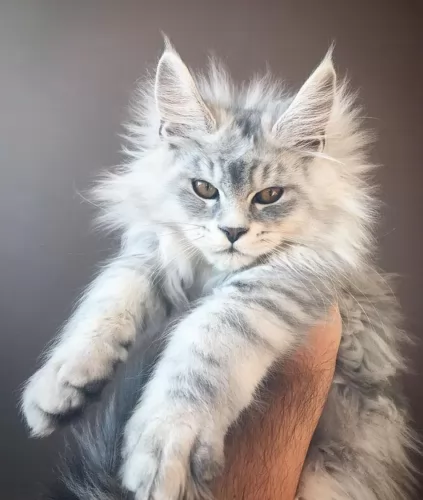 This is a large cat breed with strong bone structure. They can weigh between 5 and 9kg.
This is a large cat breed with strong bone structure. They can weigh between 5 and 9kg.
The height of these cats can be in the region of 25 and 41cm and they can reach a length of 97cm, including the tail. The body is muscular and robust with the chest being broad.
When it comes to the cat’s coat, the Maine Coon is characterized by the ruff along its chest. It has a 3-layered, water-resistant coat with longer hairs over a silky undercoat, and a long, bushy tail. The color of the coat can vary but the most common color is brown tabby. . It is medium- to long-haired. It’s a seasonal shedder with the fur being considerably thicker in the winter. All colors are available in this cat except blue.
The Maine Coon is a sociable cat and known for it playfulness as well as it being an intelligent cat and easy to train.
You’ll certainly need to supply the cat with some puzzle toys so as to stimulate his brain. It is also one of these cats known to have dog-like characteristics, becoming attached to its human owners, and being good-natured.
It is a loving cat and is also fairly vocal, wanting to tell its human owners what it wants. It’s not a lap cat. It is a gentle cat and gets on well with children and dogs as well as other cats.
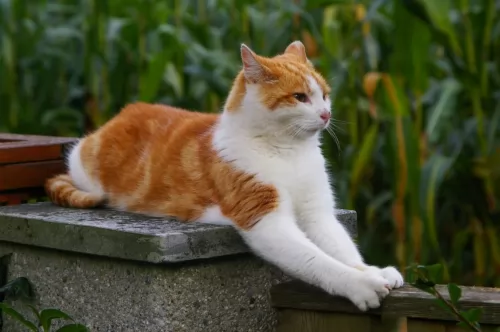 The Bicolor cat is such a steady, reliable cat-friend to have. When you start looking as these cats as your companion, you're going to get a smart, funny, adoring, playful family member who will be there for you whether you go to work each day or stay at home.
The Bicolor cat is such a steady, reliable cat-friend to have. When you start looking as these cats as your companion, you're going to get a smart, funny, adoring, playful family member who will be there for you whether you go to work each day or stay at home.
They’re such easygoing cats, with no airs and graces. They’re happy, relaxed, and uncomplicated cats and when you make a Bicolor your pet and friend, your life just becomes that much more meaningful.
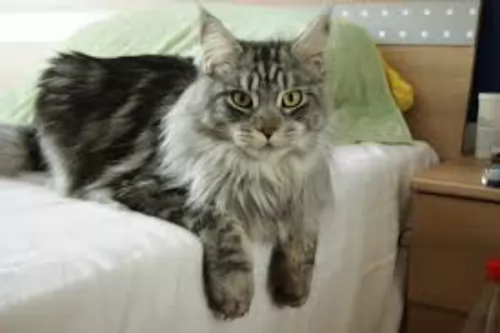 Maine Coon cats are such awesome pets and highly entertaining. They're excellent climbers too and to add to their many amazing characteristics, they love playing in water too.
Maine Coon cats are such awesome pets and highly entertaining. They're excellent climbers too and to add to their many amazing characteristics, they love playing in water too.
You’ll be doing him a favor by providing him with a paddling pool. They’re so clever, they may even learn to turn a tap on.
He is such a social, friendly, family-loving cat and it's not surprising that he’s a firm favorite with most cat lovers.
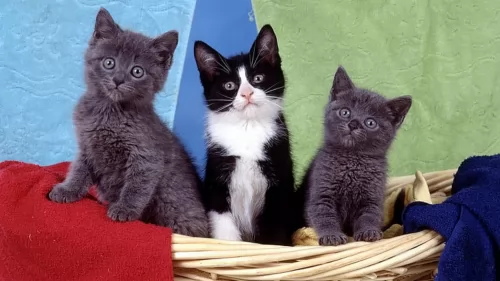 By providing your kitty cat with a loving home, you can ensure that he stays as healthy as possible. Unfortunately though, cats can get sick, regardless of how well you take care of them and then as a responsible pet owner, you will be able to take your pet to your local vet.
By providing your kitty cat with a loving home, you can ensure that he stays as healthy as possible. Unfortunately though, cats can get sick, regardless of how well you take care of them and then as a responsible pet owner, you will be able to take your pet to your local vet.
Some of the common cat problems you get can be kidney disease, ear infections, dental disease, parasites such as heartworm, cancer or something like feline immunodeficiency virus.
Whether your cat has a virus or an infection, remember that getting your cat to the vet can mean nipping the problem in the bud before it gets more serious.
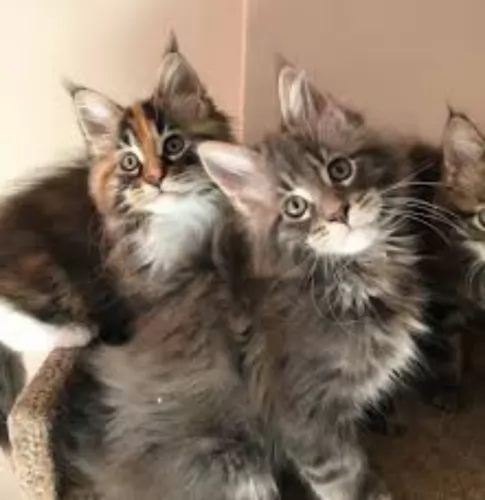 There are certain health problems that seem to occur in this particular cat breed, including hip dysplasia and feline hypertrophic cardiomyopathy.
There are certain health problems that seem to occur in this particular cat breed, including hip dysplasia and feline hypertrophic cardiomyopathy.
Hip dysplasia is a condition of the hip joint that can cause degeneration of the joints. It can lead to stiffness and pain for your cat and it can be that your cat develops osteoarthritis.
If your cat develops hip dysplasia it won’t want to jump, it becomes lethargic and there may even be muscle loss in the rear legs.
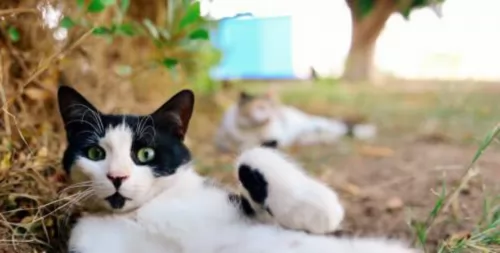 Caring for your Bicolor cat is much the same as with any other cat. Your Bicolor will shed, so brushing him will tickle him pink, especially if you do it lovingly and gently – it’s like a bonding session. The weekly brushing will get rid of loose hairs and dust and keep the coat healthy and shiny.
Caring for your Bicolor cat is much the same as with any other cat. Your Bicolor will shed, so brushing him will tickle him pink, especially if you do it lovingly and gently – it’s like a bonding session. The weekly brushing will get rid of loose hairs and dust and keep the coat healthy and shiny.
Spay or neuter your pet to avoid unwanted kittens. Stay up to date on veterinary visits and vaccinations.
Provide your cat with stimulating toys as well as all the equipment he needs to be comfortable – food and water bowls, litter box, grooming equipment, bedding, climbing- and scratching equipment.
All cat owners, whether their cats eat homemade food or wet- or dry food should read cat food labels and understand the nutrients content.
Certainly, as a carnivore, cats require certain vitamins, minerals, and proteins that only meat can provide.
Understand how to work out if the cat food is balanced or not and not packed with too many grains and carbohydrates.
How much your Bicolor eats will depend on his age and his activity levels. Be careful not to overfeed your cat as overfeeding is dangerous. When cats put on too much weight, it leads to problems such as diabetes, heart- and joint disease.
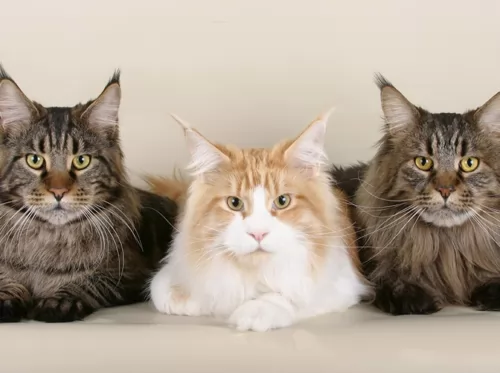 Cat owners need to realize that diet is one of the most important factors of keeping a cat healthy. The Maine Coon needs nutritious food.
Cat owners need to realize that diet is one of the most important factors of keeping a cat healthy. The Maine Coon needs nutritious food.
Some people give their cat a mix of dry kibble as well as wet food. It is better to feed your pet smaller meals as opposed to large meals. What is very important is that the cat food is of a high-quality and that it be made up of meaty protein as every cat is a carnivore.
Provide your Maine Coon with a litter box and put it in a quiet, private area. It’s a large cat so make sure the litter box is large as well. With a cat you may need to experiment with him to figure out where he prefers his litter box to be.
This is an active cat so ensure that he gets plenty of exercise. Provide him with climbing equipment and stimulating toys. Your Maine Coon might even enjoy going for a walk and for this, you’ll need to get a cat harness.
Every cat likes to scratch – it’s normal behavior. Make sure you have one or two scratching posts with heavy bases set up for your cat otherwise he may direct his scratching on your furniture.
Every cat owner needs to know a good vet in their area so that their pet can get immediate veterinary help when he becomes sick.
Your Maine Coon’s coat is thick – made up of 3 layers. To maintain its silky feel, and to prevent matting, make sure to brush it once or twice a week. Make it an enjoyable, gentle grooming session for your furry pet. Speak to your vet about the right kind of brushes.